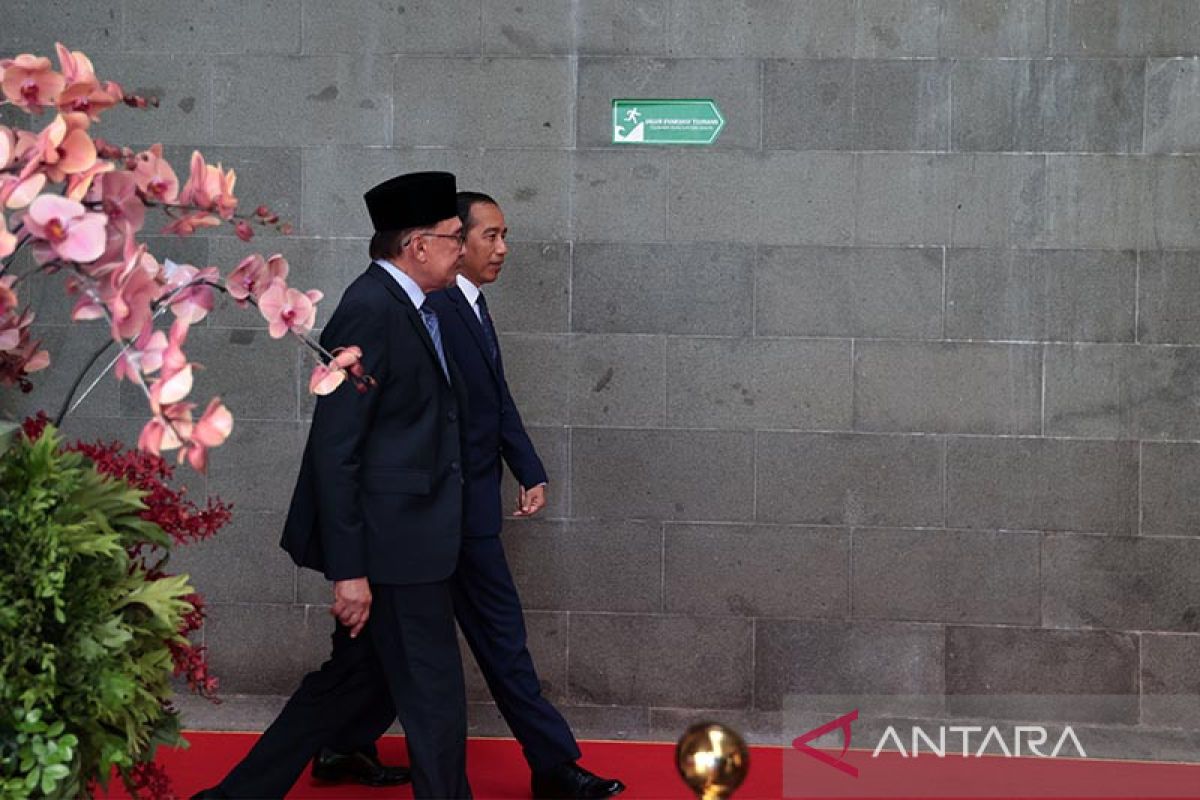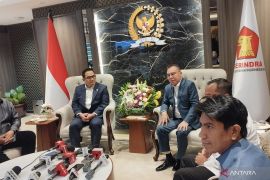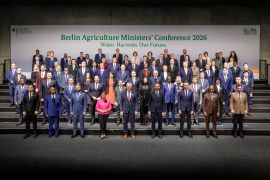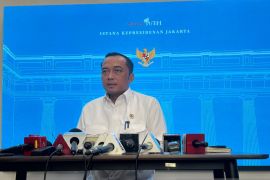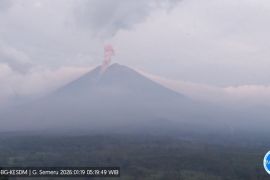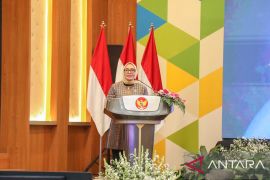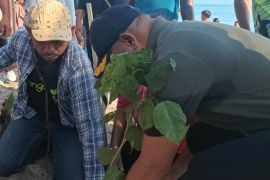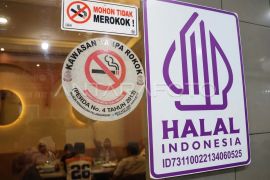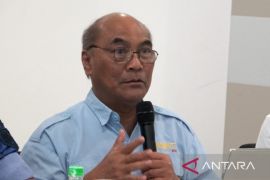It was reported that a convoy transporting humanitarian assistance from the ASEAN Coordinating Centre for Humanitarian Assistance and Disaster Management (AHA Centre) was attacked by an unknown armed group in Taunggyi, a city in eastern Myanmar.
The convoy also included Indonesian diplomats and the ASEAN Monitoring Team.
During a press conference on the preparations for the summit on May 8, 2023, President Joko Widodo (Jokowi) expressed regret over the incident. Singapore also reacted strongly to the incident.
According to The Irrawaddy, a Yangon-based media outlet, the southern part of Shan State, where Taunggyi is located, was not much affected by the armed conflict that raged in almost all regions in Myanmar after the country's military overthrew the democratically elected government.
The coup took place on February 1, 2021, just a few months after the general elections on November 8, 2020.
However, a massacre was reported in March 2023 in the southern part of Shan State, which claimed the lives of about 30 persons who were taking refuge in a monastery.
Both the Myanmar military and the opposition parties accused each other of orchestrating the massacre.
Two months after the tragedy, an ASEAN convoy sent to disburse aid to help the people affected by the conflict in Myanmar was attacked.
The attack did not claim any lives, but it was certainly regarded as a disturbance against ASEAN initiatives.
It is not clear who conducted the attack, but The Irrawaddy reported that the parties fighting against the military junta, including an armed ethnic group in Shan State called Pa-O National Liberation Organization (PNLO), had denied attacking the convoy.
However, the Pa-O National Organization (PNO), a military junta-supported group in Shan, blamed PNLO for the attack.
The armed ethnic group denied the charge, saying that it would never attack its own comrades since a number of PNLO officials were also a part of the convoy.
The PNLO and the junta’s main opposition group, the National Unity Government (NUG) of Myanmar, accused the junta back for carrying out the attacks.
The NUG is Myanmar’s government-in-exile established by legislators who won the 2020 general election as well as members of parliament, which was dismissed by the junta through the coup.
Appropriate ASEAN stance
Shan is one of the several regions in Myanmar that engaged in an armed battle with the military junta after the civilian government led by Aung San Suu Kyi was overthrown by the junta led by General Min Aung Hlaing.
Fierce confrontations were reported in 7 of the 15 regions in Myanmar, namely Shan, Chin, Kachin, Kayah, Kayin, Mon, and Rakhine.
The conflict worsened over time, as the junta increasingly suppressed its opposition parties, including the ethnic minorities who were supposed to be embraced.
It claimed the lives of around 3,200 civilians and forced thousands of others to flee.
Even the safety of the ASEAN convoy, which came with goodwill to disburse humanitarian aid to the conflict-affected community, could not be guaranteed.
The distribution of the assistance was one of the mandates of the Five-Point Consensus agreed upon by General Min Aung Hlaing and the head of state of other ASEAN member countries in Jakarta in April 2021.
Through the consensus, ASEAN also called for immediate cessation of violence in Myanmar as well as the implementation of constructive dialogue involving all parties to find a peaceful solution in the interests of the people.
The consensus also mandated that a special envoy of the chair of ASEAN, assisted by the Secretary-General of ASEAN, facilitate the mediation as well as visit Myanmar to meet with all parties involved.
Although the permit given to the AHA Centre to enter the territory of Myanmar and distribute the aid indicated the junta's willingness to start implementing the Five-Point Consensus, other ASEAN member countries were not satisfied with the act.
Certainly, ASEAN was disappointed because the junta showed little progress in the implementation of the other points of the consensus, even though it was supposed to be the party most bound by the agreement.
Hence, it was an appropriate decision on the part of ASEAN to prohibit junta leaders from attending the 42nd ASEAN Summit on May 9–11, 2023.
In the previous year, the regional organization had also excluded the Myanmar junta leaders from its summits in Cambodia.
Such pressure must be continuously exerted to push the junta to hold a peaceful negotiation with the opposing parties and find a comprehensive solution to immediately end the conflict.
These attempts do not aim to intervene in Myanmar's domestic problems, but seek to realize a consensus, which has been agreed to by the junta and other ASEAN countries.
For regional stability
The Myanmar junta must not be allowed to keep avoiding its responsibility to implement the Five-Point Consensus, while it continues to seek support from other parties outside ASEAN, such as China and Russia.
If this situation continues, the crisis in Myanmar may worsen. Even now, the country’s economy has fallen to its lowest point since the coup.
The junta's inability and mismanagement in administering Myanmar's economy have led to the sector’s deterioration.
According to the World Bank, Myanmar's economy, which had grown quite rapidly prior to the 2021 coup, declined by 18 percent in 2021.
Meanwhile, the International Monetary Fund (IMF) projected that the sector would slacken this year.
Furthermore, Myanmar has lost considerable foreign investment, as the country has been subjected to a number of international sanctions and many foreign companies have left the country.
The country’s economy has also slumped after the value of its currency experienced a devaluation, shedding half of its original value and resulting in a high inflation rate of 16 percent in 2022.
Hence, commodity prices are soaring, while the people’s purchasing power is declining. The situation is hampering communities’ access to basic commodities.
The World Food Program (WFP) has estimated that 14.4 million people in Myanmar -- or 25 percent of the total population -- are at risk of food insecurity due to the conflict.
Thus, the country is facing two calamities at once: widespread violence and hunger.
If worst comes to worst, there may be waves of refugees fleeing from Myanmar to other countries in Southeast Asia, especially Laos and Thailand, which share borders with Myanmar.
The situation could also hamper ASEAN's attempts to resolve regional and global challenges as it requires strong collaboration from all member countries.
Hence, ASEAN must increase efforts to actively press the military junta to involve all parties to produce and implement lasting and comprehensive solutions to bring back peace in Myanmar.
This is because the end of the conflict in Myanmar could bolster regional stability and help ASEAN establish itself as an epicenter of global growth.
Related news: Indonesia reiterates Myanmar's involvement in ASEAN
Related news: Hope for political commitment on internal dialogue in Myanmar: Widodo
Related news: Five-Point Consensus still reference for handling Myanmar issue: ASEAN
Translator: Jafar Sidik, Uyu Liman
Editor: Azis Kurmala
Copyright © ANTARA 2023
